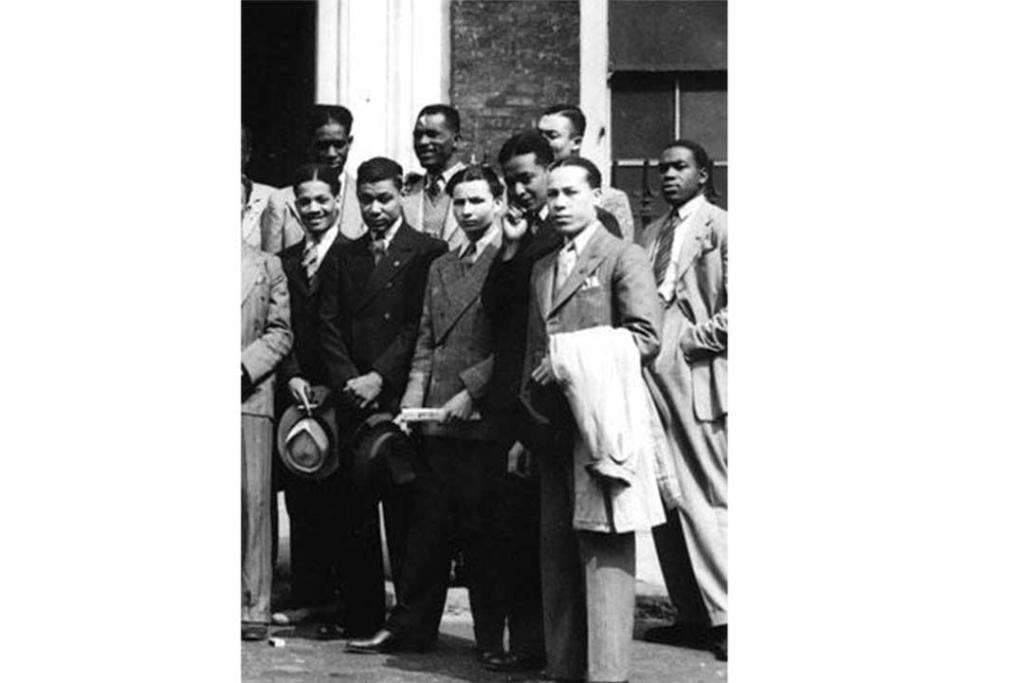Celebrating Angus Wood
For Black History Month we celebrate diverse voices from Liverpool’s Black community. This article celebrates the life of Angus Wood and his contribution to the war effort during the Second World War.

Angus Wood (with coat over his arms)
“Because I am from Jamaica, an engineer didn’t think I was capable of sharpening a drill, although after that you know we got on smashing. I was treated quite well, especially when they suddenly realised that everything in Kingston was the same as in England”
Angus Wood, speaking in 2002. Liverpool Voices, Liverpool Lives archive, Museum of Liverpool.
Angus was born in Kingston, Jamaica and came to Liverpool when he responded to the call for engineers to come and work in munitions factories here in Britain. He left Kingston on 13 January 1940 with a large group of other skilled men. After a long journey they docked in Scotland and travelled by train to Liverpool. Initially they lived at the YMCA in Birkenhead. Angus was employed at ROF Fazakerley, a newly opened rifle manufacturing factory.
Initially he was treated a little differently but once he proved that he knew his job he was treated the same as the other workers. His job, a protected occupation, was to set up machines that the women workers used to cut and grind components for rifles. Angus also joined the factory's own Home Guard, performing night fire watches and guard duty before and after a full day's work.
The women workers in the factory helped them to find lodgings with local families. Angus lived for two years with the Roberts family, in Crescent Road, Fazakerley, before meeting his wife at the factory and setting up their own home. Angus and his friends often went to the Grafton Ballroom in their free time. Here they experienced some racism from American GIs. Angus tells us more -
“The Americans didn’t want any coloured chaps in there, and we were British so they couldn’t stop us, and when they objected there was a fight. I always keep clear of any fights. I was never personally involved in any of them”.
After the war the men were offered the opportunity to return to Jamaica, or stay in Britain. Angus, who was by then married with young children, chose to stay. He lived and worked in Liverpool, staying on at the factory until it closed in 1962.
